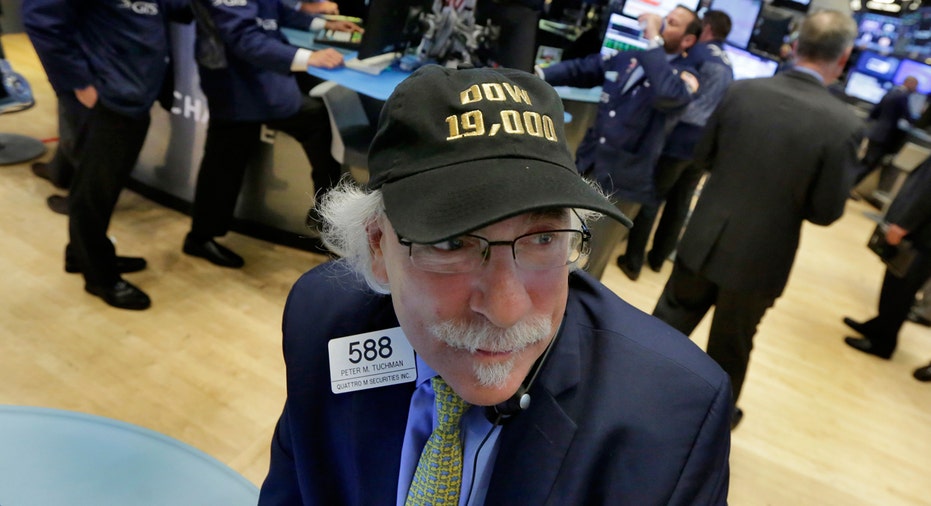Trump Momentum Powers Wall Street to Fresh Records, Dow Closes Above 19K

Another record week on Wall Street continued as the major averages hit fresh record levels and the Dow Jones Industrial Average traded and closed above 19000 for the first time ever.
By the closing bell, the Dow rose 67 points or 0.35% to 19023, while the S&P 500 ticked up 4 points, or 0.22% to 2202, and the Nasdaq Composite gained 17 points, or 0.33% to 5386. Telecom, real estate, and consumer discretionary sectors led the gains.
Wall Street’s continued momentum came after notching closing highs on the Dow, S&P, Nasdaq, and Russell 2000 indexes during the prior session -- the first time all four averages set new highs simultaneously since December 1999.
Since the surprise outcome of the U.S. election two weeks ago in which Donald Trump secured the White House, the Dow has rallied more than 667 points, or 3.64% as Wall Street has cheered the prospects of a round of infrastructure spending, renegotiated global trade deals, and a drawdown in regulation.
“Almost as surprising as the election result has been the market reaction,” said Joshua Feinman, chief global economist at Deutsche Asset Management. “There is a good chance of some significant fiscal stimulus, including tax cuts, tax reform, and infrastructure spending, which should boost growth and with the economy already close to full employment, help lift inflation back to target.”
However, “policy accidents,” or broken campaign-trail promises, could quickly undo the quick rally, warned Michael Block, chief strategist at Rhino Trading Partners.
“If we hear from Trump that he is not going to undo Dodd Frank because that’s not what he promised the people in Beaver Falls a few weeks ago, or if GOP legislators start pushing back on deregulation, we could see financials fall from lofty perches….if Trump makes noise about leaving ACA alone because he can’t figure out how to replace it yet, health care could suffer a setback,” Block said.
Indeed, Feinman warned that while he agrees with the market’s general direction in response to the election outcome, investors could be underappreciating some risks that could cloud the economic outlook amid “lofty expectations.”
Over the last four weeks, the financial sector has surged more than 12% helped by optimism over an interest-rate hike from the Federal Reserve at its next meeting in December. Federal funds futures, a tool used to predict changes in monetary policy show market expectations peg odds of a rate rise at 100%. That’s helped push the yield on the benchmark 10-year U.S. Treasury bond, which moves inversely to its price, down 0.027 percentage point to 2.31%.
The industrials sector, meanwhile, has posted gains of 7% in the last month, while energy has rallied 5% and health care is up 3%.
The broader market’s momentum has also been fueled by gains in the energy sector, which saw oil prices rally nearly 4% in the prior session. The surge came on the back of optimism about whether the Organization of the Petroleum Exporting Countries (OPEC) will reach a deal to cut oil production at its meeting this month.
Oil prices took a breather during the session, trading down more than 1%. Both West Texas Intermediate and Brent crude prices nudged up against the $50 per barrel mark during the session.



















